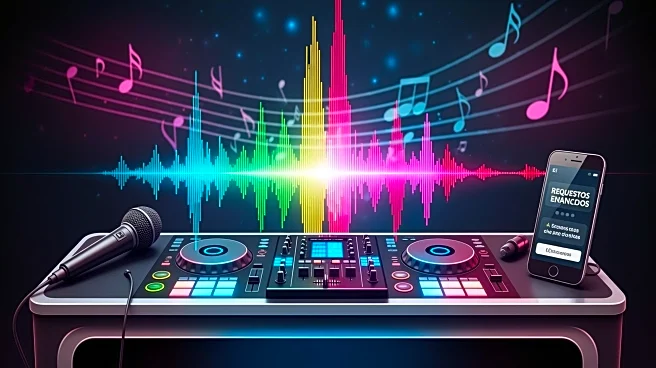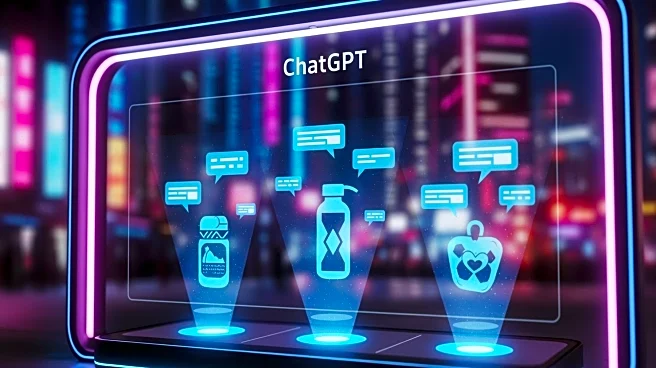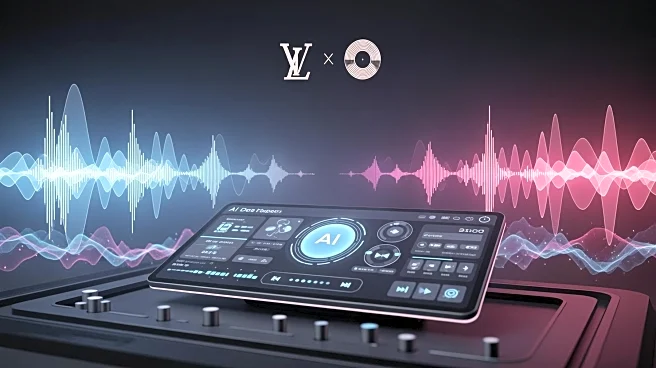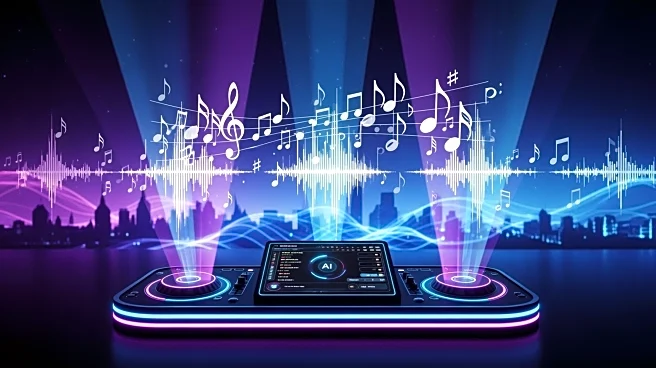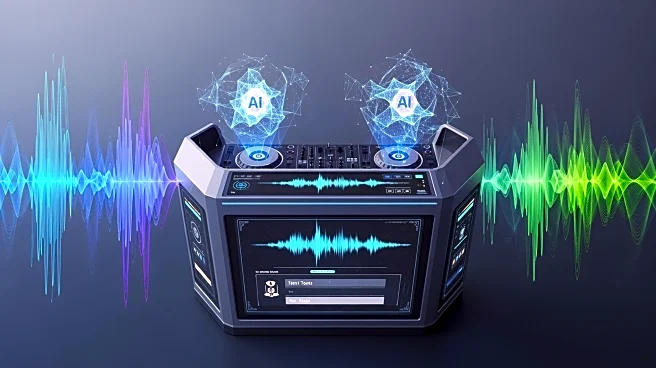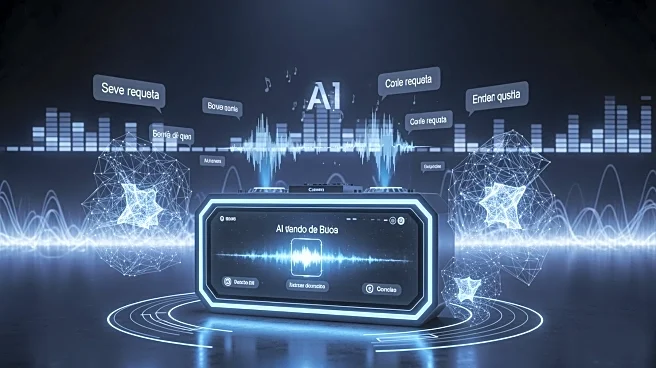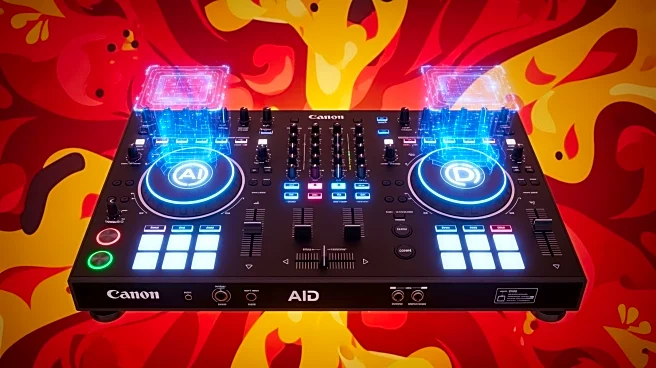What's Happening?
Spotify has enhanced its AI DJ feature, which is available to Premium subscribers, by introducing the ability to send music requests via text. Previously, users could only interact with the AI DJ through
voice commands. This update allows users to type their requests in both English and Spanish, with the Spanish-language DJ, DJ Livi, now accepting text inputs. The AI DJ feature was initially updated to accept voice requests earlier this year, but this capability was limited to the English-language AI DJ until now. The move to include text input aligns with the growing trend of AI chatbots, such as ChatGPT and Gemini, which support multi-modal inputs including text, voice, and image uploads. Spotify's decision to incorporate text requests is aimed at accommodating users who may be in environments where voice commands are impractical, such as during commutes or in quiet spaces.
Why It's Important?
The expansion of Spotify's AI DJ feature to include text requests is significant as it reflects the increasing integration of AI technology into everyday consumer experiences. By offering text input, Spotify enhances user convenience and accessibility, potentially increasing user engagement and satisfaction. This development also positions Spotify competitively against other tech companies that have integrated text-based interactions into their AI assistants, such as Apple's Siri. The ability to personalize music requests based on genre, mood, artist, or activity further enriches the user experience, potentially driving more users to opt for Spotify's Premium subscription. As AI continues to evolve, features like these could become standard in digital services, influencing how consumers interact with technology.
What's Next?
Spotify's AI DJ feature is currently available in over 60 markets worldwide, and the company may continue to expand its capabilities to include more languages and regions. As users become accustomed to the convenience of text-based interactions, Spotify might explore additional AI-driven features to enhance personalization and user engagement. The company could also consider partnerships or integrations with other platforms to broaden the reach and functionality of its AI services. Stakeholders, including music artists and record labels, may need to adapt to these technological advancements, which could influence music discovery and consumption patterns.
Beyond the Headlines
The introduction of text-based requests in Spotify's AI DJ feature highlights broader trends in AI adoption and user interaction. As AI becomes more embedded in daily life, ethical considerations around data privacy and user consent may arise, particularly concerning how user data is collected and utilized to personalize experiences. Additionally, the shift towards AI-driven personalization could impact cultural consumption, potentially influencing music trends and the visibility of emerging artists. Long-term, these developments may contribute to shifts in the music industry, affecting how content is curated and distributed.



